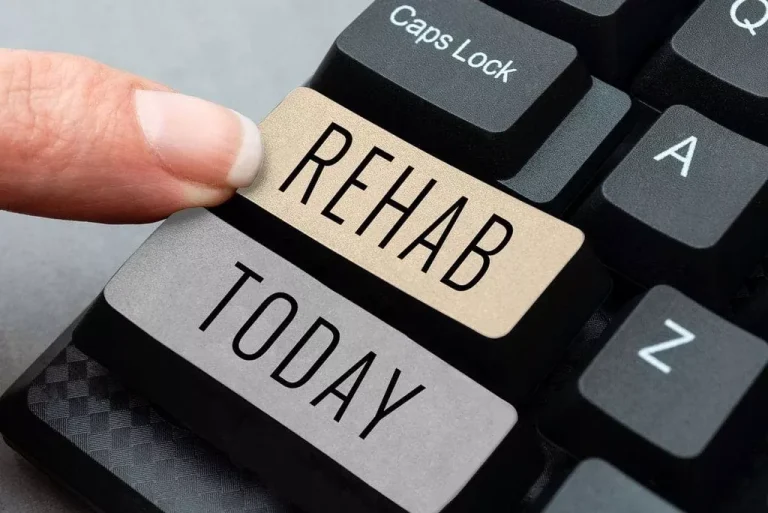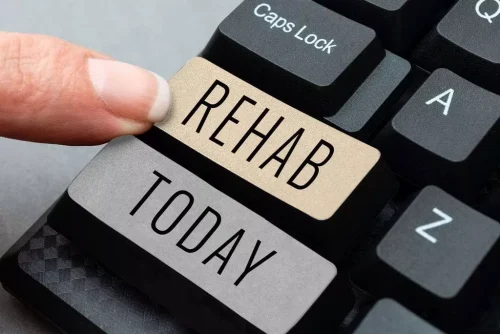
Finding a medical treatment plan or recovery support community can help you heal. This doesn’t mean previous treatments failed, because the person with addiction still made progress overall in getting well. A recurrence may be a sign that the treatment approach or other supports need to change, or that other treatment methods are needed. Misconceptions about addiction are prevalent in today’s society and contribute to stigma. There are plenty of people who use drugs on occasion and never become addicted.
- It’s just another way society blames people who are only trying to help get someone well.
- This myth oversimplifies a complex issue and can lead to stigma and judgment towards individuals struggling with addiction.
- Going through medically supervised and assisted withdrawal does not diminish your progress toward sobriety.
Free Healthbeat Signup

But return to my claim that no one would change their minds due to logic, evidence, experience, and the lack of efficacy of our efforts to curtail drug addiction and death, as indeed my audience wasn’t prepared to do. It can even serve as a helpful tool to teach addicts about the changes they need to make to see long-term improvement. It’s easy to feel helpless when someone in your life is struggling with addiction. But, it’s imperative that you don’t give up and assume there is nothing you can do. Before getting into (and debunking) some of the most common addiction myths, it’s important to emphasize why falling for these myths is so dangerous. Public and the role of public perception in supporting or inhibiting increased understanding and implementation of effective public policies regarding research (Chapter 8).
Myths About Addiction That May Surprise You
You may even fool yourself into thinking you’re not an addict because you don’t fit the typical mold. There are lots of factors that go into someone being an addict versus someone who occasionally uses a specific substance recreationally. Sign up for email notifications and we’ll let you know about new publications in your areas of interest when they’re released. The serpent has been a symbol of long life, healing, and knowledge among almost all cultures and religions since the beginning of recorded history. The image adopted as a logotype by the Institute of Medicine is based on a relief carving from ancient Greece, now held by the Staatlichemuseen in Berlin. The views presented are those of the Institute of Medicine Committee to Identify Strategies to Raise the Profile of Substance Abuse and Alcoholism Research and are not necessarily those of the funding organization.
- Embracing flexibility, patience, and perseverance can help individuals navigate the challenges of recovery and maintain their commitment to sobriety.
- Offering residential, outpatient and day treatment options, Gateway is committed to helping you find a way forward.
- Once a patient reaches a certain point in their progress, their medical team can then begin to ease up on the use of medications to treat their symptoms.
- Sign up for email notifications and we’ll let you know about new publications in your areas of interest when they’re released.
- The idea is that, if they just exercised enough discipline and willpower, they’d be free of their addiction.
- Developing effective relapse prevention strategies and having a strong support network can significantly reduce the risk of relapse and help individuals maintain long-term sobriety.
- Even though the leading authorities on addiction agree that addiction is a chronic disease similar to heart disease, diabetes, and cancer, addicts are still treated as second-class citizens.
The Truth About Alcohol
Ultimately, love and support are what encourage change, not punishment and rejection. That being said, the consequences of addiction (or costs of using) are oftentimes what tip the motivational balance, leading to increased motivation. I quoted the head of the AMA’s task force on opioids, Dr. Patrice Harris.
- In 1984, the FDA approved naltrexone, now also in a long-acting injectable form, for OUD and AUD, reinforcing the idea addictions are related.
- “I didn’t like becoming groggy at two in the afternoon.” In other words, he had other matters to attend to with which narcosis interfered, and therefore he wasn’t inclined to savor the drugs’ effects.
- Waiting until you hit ‘rock bottom’ before seeking treatment isn’t a good decision.
- Encouraging an environment that acknowledges the whole person, rather than just their struggles, can lead to more supportive communities and stronger recovery outcomes.
This means that they bind to the same opioid receptors in the brain that opioids like oxycodone, heroin and fentanyl do, and provide relief from withdrawal symptoms. Some people misinterpret that to mean that we’re just replacing one addiction for another. Most of the time, patients use opioids not to get high, but to avoid the withdrawal symptoms such as body aches, nausea, vomiting, diarrhea, cramping, muscle aches, insomnia, abdominal pain and anxiety. Buprenorphine and methadone help patients avoid withdrawal symptoms, but don’t offer the high, https://ecosoberhouse.com/ which means they are less addictive. Their effects also last much longer (24-36 hours), which allows patients to get on with their day without having to think about their opioids.
Myths About Substance Abuse
If you’re interested in receiving support, you can schedule a free 15-min consultation here. Addiction is a chronic and relapsing condition, and, as with other chronic conditions, patients may need to adjust their treatment plans if setbacks occur. It’s where you gain the skills you need to combat cravings, and where you get a taste of what your life can look like without addiction.
myths about using Suboxone to treat opioid addiction
However, these medications are considered an essential tool in reducing the chances of a patient causing harm to themselves or someone else during the withdrawal process. Going through medically supervised and assisted withdrawal does not diminish your progress toward sobriety. The belief that individuals can quit their addiction “cold turkey” without any professional help or treatment is both unrealistic and potentially dangerous.

While progress has been slower against cocaine and methamphetamine, clinicians have learned to deemphasize withdrawal distress and focus on dopamine and pathological attraction. The cocaine epidemic allowed psychiatry to understand behavioral addictions such as gambling, supporting diagnostic and treatment development. For some addictions, such as those to stimulants like methamphetamine and cocaine, patients do not have the dramatic withdrawal seen with benzodiazepines, alcohol, or barbiturates.


Recognizing these behavioral factors and the influence of brain chemistry helps to challenge the myth that individuals with addiction merely lack willpower. Understanding the myths about addiction and recovery complexities surrounding addiction fosters a more empathetic approach toward those affected. Avenues Recovery’s professional, highly skilled team have treated countless addicts and heard all the myths there are about addiction. Read on to learn the baseless common misconceptions about addiction and to discover the real truths behind the rumors. Legal drugs like Vicodin, Percocet, OxyContin, Codeine, Adderall, and Xanax are all examples of prescription medications that people can become addicted to.
